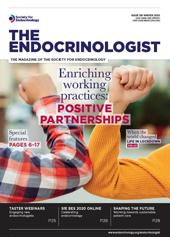My quote to summarise myself would be ‘a product of India, manufactured in the UAE, exported to India and then refurbished to be distributed to the UK’! I completed my medical training in India and came to the UK in 2012. I had to take the long route, via an additional degree, followed by a period of nomadism, to finally land that coveted ‘Training Number’ in 2018.
From making decisions about which vein to put the cannula in, to deciding which patient needs admission or which patient is dying – what’s the difference? Some people affectionately call the first Wednesday of August, when newly qualified doctors traditionally start work, ‘Black Wednesday’. At any other stage in training, it might be something you look forward to, if you have been in a fairly difficult placement in the months before. But that year, I was dreading the first step into the big bad world of medicine as a Registrar. Some I asked said it was the most hated job of all (although maybe I shouldn’t have asked surgeons). The year 2018 definitely brought about a change in my life, in terms of job profile and overall career. Gone were the fun days of clerking and doing cannulas. Here we go, ‘med reg’ life! What a contrast!
‘Gone were the preparations to attend
the Endocrine Update and the Specialty
Certificate Exam. Hello, instead, COVID
Medical Registrar Rota.’
But I survived that first year, and around came August again, with its usual apprehensions about a new placement. Rotas? Clinics? On-call commitments? When can I take annual leave? Can I take annual leave? Teaching and learning opportunities? Educational supervisor/clinical supervisor? All usual questions for a trainee to ask.
But of course, now, 12 months later, when I look back, I see a year which was completely different to my expectations. I got a few clinics here and there, but now it’s the year 2020. Hello Mr COVID. Welcome to the UK. Gone were the preparations to attend the Endocrine Update and the Specialty Certificate Exam. Hello, instead, COVID Medical Registrar Rota.
In hindsight, our hospital had planned extensively prior to the lockdown period and went to extreme lengths to fix staffing gaps and even recruit extra hands to support the busy on-call take. We actually had a pleasant experience in the face of adversity, with food being delivered on a regular basis to the Acute Medical Unit on night shifts from a friendly restaurant patron nearby.
There were wood-fired pizzas and ice creams for the hard-working medical teams and Intensive Care Unit comrades. Goodie bags were prepared by the local schools with hand creams to soothe the hands that had been scarred and dried from excessive hand washing and gelling. The hospital had a plain glass corridor which, while normally quite dull and featureless, now boasted caricatures and wishes from children aged 2–10, many with words of positivity (a few spelling errors here and there, to ensure we kept smiling and got on with life). It was a community throwing its support at the hospital that served its populace.
And I did, thankfully, get some specialty training. My fantastic consultants ensured that, despite all the catastrophes that ensued, with people falling ill at the drop of a hat, I still had the opportunity to attend the few clinic options available (e.g. the diabetes foot clinic). I also witnessed, first-hand, what campaigners have been clamouring for a while – the importance of good diabetes care in the community – as our cohort really struggled with COVID and its effects. These resulted not just from the actual disease, but also from the fear of contracting it. I particularly remember a case of a young woman being admitted with acute pulmonary oedema following a week of chest pain, which turned out to be a late presentation of a STEMI (ST-elevation myocardial infarction). She had type 2 diabetes, and hadn’t had a review for some time due to her work commitments and clinic cancellations due to COVID. Her HbA1c? A remarkable 131mmol/mol.
I also had exposure to the managerial aspects of running a hospital, given that both my department’s lead consultants had managerial roles. I had the chance to get involved in rota management, and helming the ward during the absences of consultants drafted to the COVID warzone.
‘My fantastic consultants ensured that,
despite all the catastrophes that ensued, I
still had the opportunity to attend the few
clinic options available.’
So, have I learnt much from the past year? Yes. Did it influence me as a clinician? Absolutely. To summarise, I had a 50/50 experience. I enjoyed the few bits of endocrinology that I did manage to pick up in the initial and end stages. I did obtain the proficiency I was expecting to obtain in the field of diabetes. But, more importantly, I had the true district general hospital experience – working with a family on my ward, with a team of fantastic clinicians and human beings. Oh, and I got a COVID survivor memento, as well, at the end of it. Don’t think I had a similar experience anywhere else.
VENKATRAM SUBRAMANIAN
Specialty Trainee (St5), Diabetes and Endocrinology, Health Education England North West Deanery






